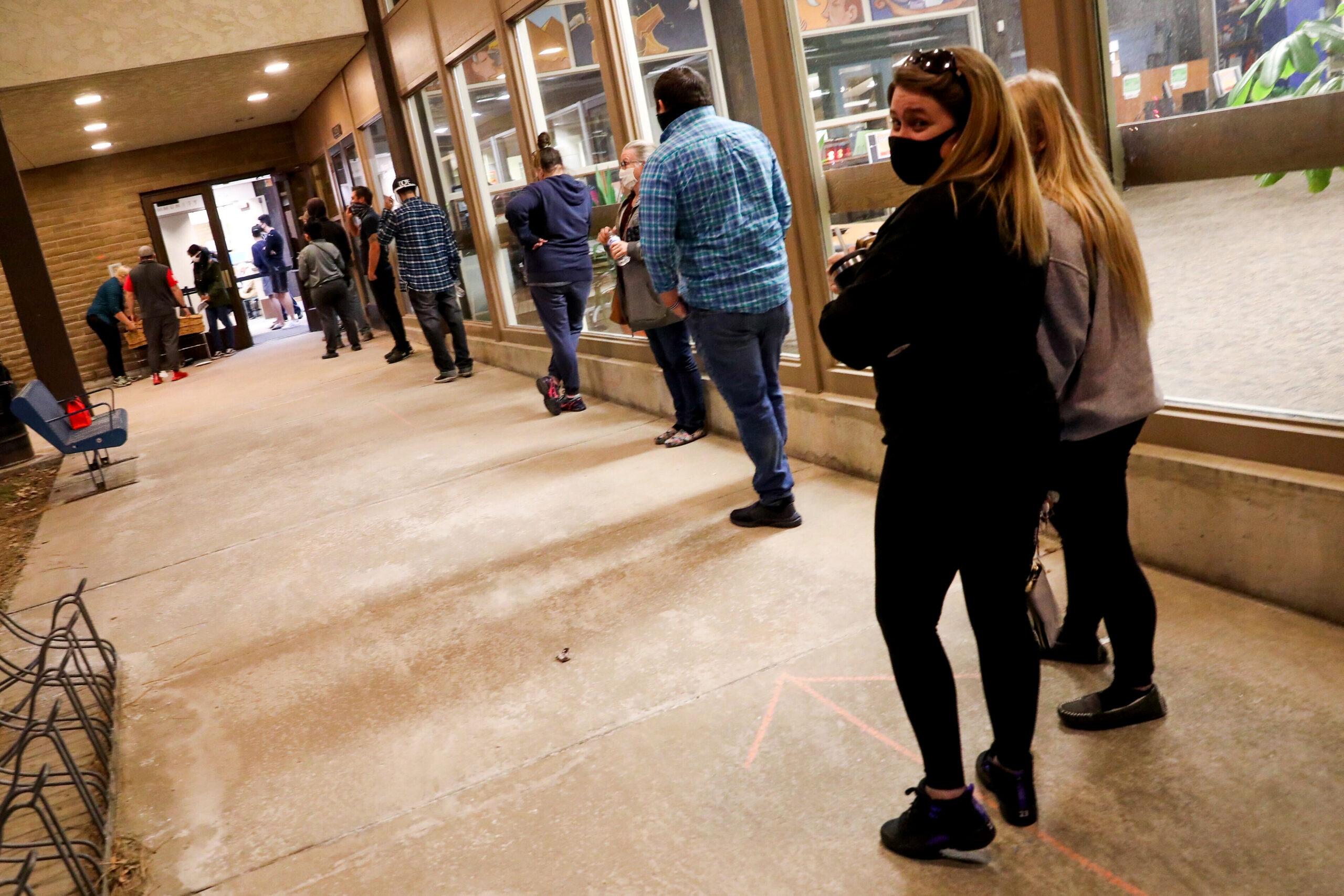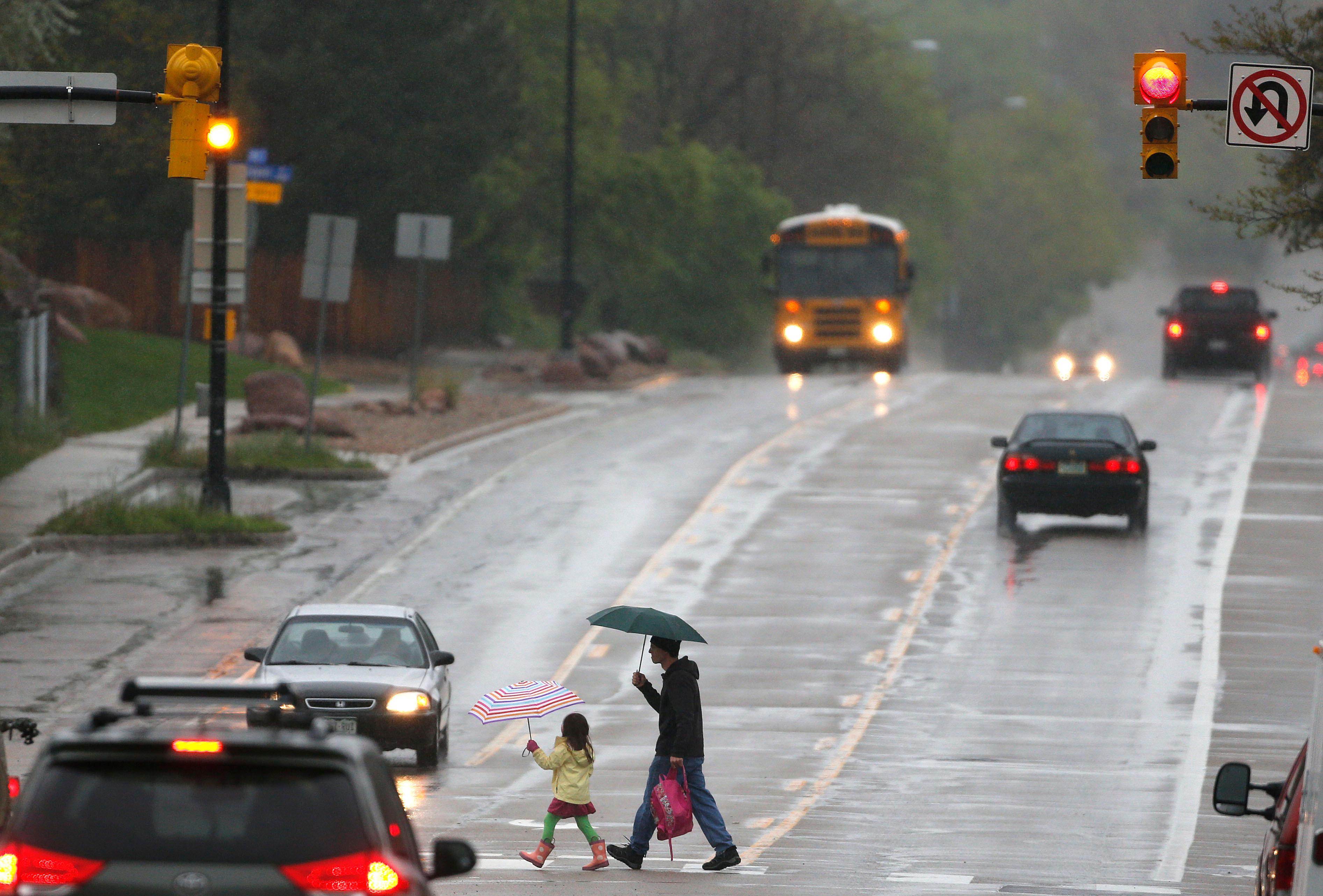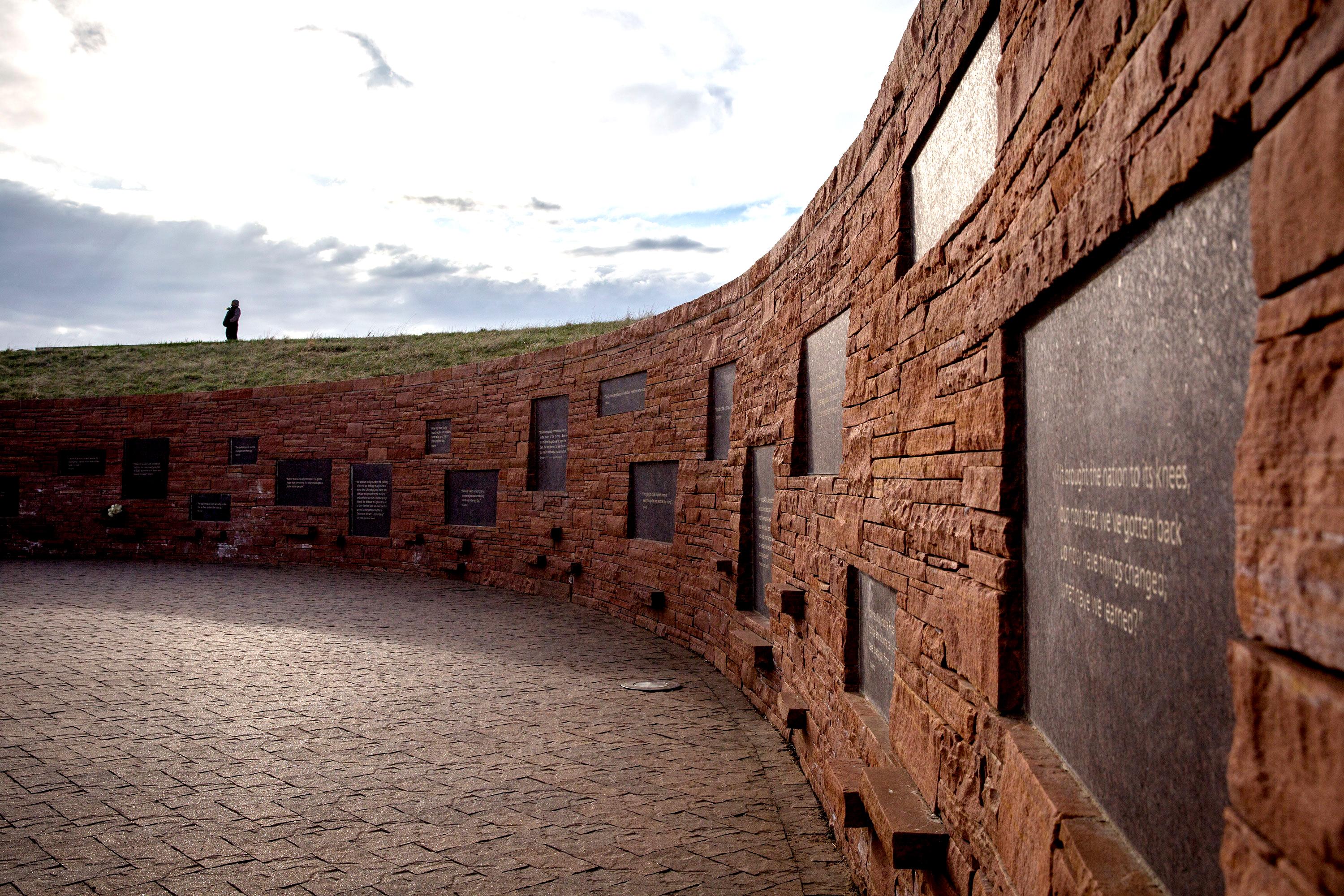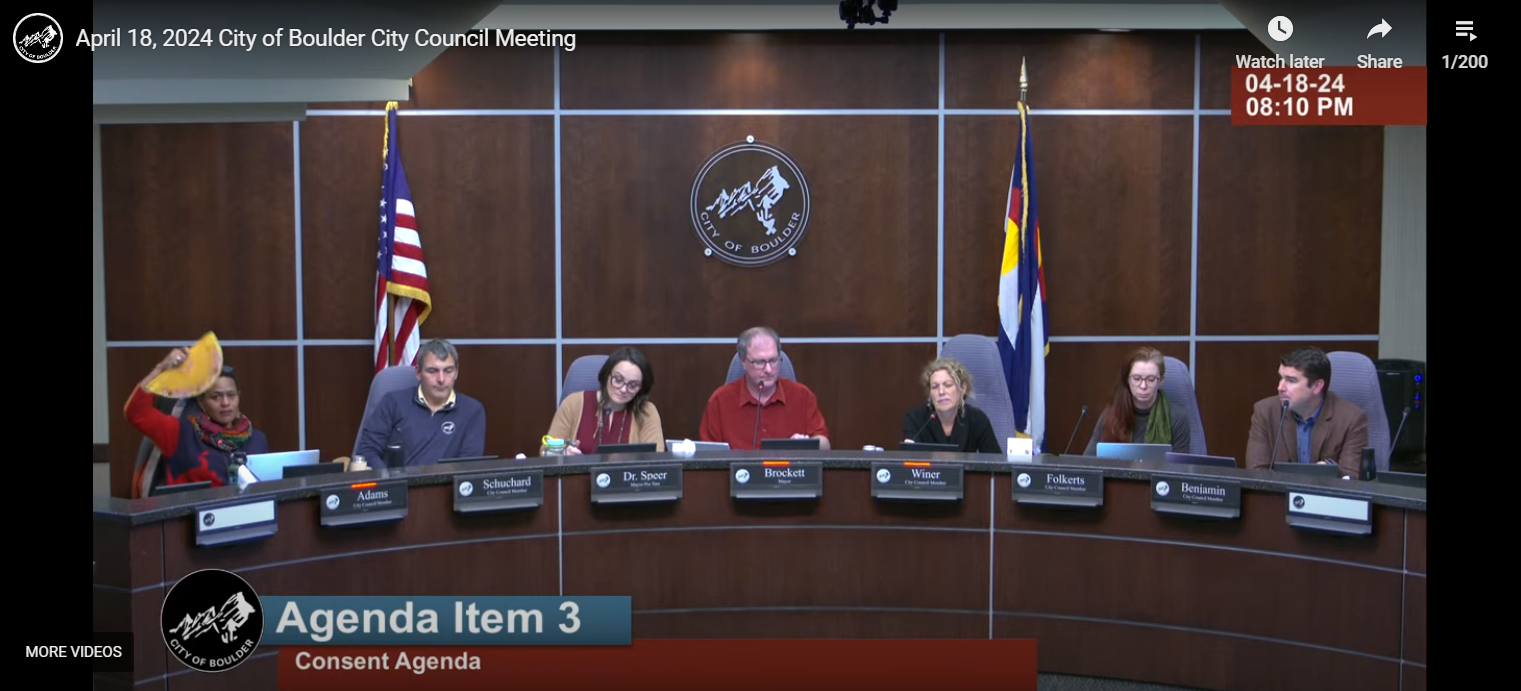
As of 3:30 p.m. on Nov. 4, eight out of 11 Amendments and Propositions on Colorado's ballot have been called by the Associated Press. Here's where things stand right now.
✔️ Passed
Amendment B — Repeal Property Tax Assessment Rates
Colorado has voted to repeal part of the Gallagher Amendment, which limits residential property taxes to 45 percent of the statewide tax base. The passing of the measure prevents automatic cuts to residential property tax rates in the future.
Homeowners’ bills won’t go down, but funding for schools, rural fire districts and other entities that rely on property taxes will stay steady. Originally added to the state constitution in 1982, Gallagher effectively forces the state to lower residential property tax rates in order to keep residential tax revenue “balanced” with commercial property revenue.
This measure was referred to the ballot by state lawmakers via SCR20-001.
Amendment 76 - Citizenship Qualification of Electors
Colorado voters have approved Amendment 76, which amends the state constitution to explicitly require that Colorado voters must be U.S citizens.
The state already bans non-citizens from voting, so opponents say this would accomplish little in practice. But its supporters argue that language needs strengthening and point to a handful of cities in other states that allow non-citizens to vote in some local elections.
The state constitution currently says that “every citizen” may vote, while the amendment would change it to say that “only citizens” may vote. Read the initiative text here.
Amendment 77 — Local Voter Approval of Gaming Limits in Black Hawk, Central City, and Cripple Creek
Voters across the state favored Amendment 77 on Election Day by nearly 20 points.
When Colorado voters approved gambling in three historic mountain mining towns, it came with a lot of limits; casinos can only offer slots, blackjack, poker, craps and roulette, and as of 2008, individual wagers are capped at $100.
The passing of this measure allows local voters in Black Hawk, Central City and Cripple Creek – the only Colorado cities with legal gambling — to approve higher betting limits and more types of games.
It also allows revenues to go to community colleges.
Proposition EE — Increase taxes on nicotine products
Proposition EE will raise an estimated $168 million next fiscal year by creating a new tax on nicotine vaping products and raising existing taxes on tobacco products.
This measure was referred to the ballot by the state legislature.
Vaping product taxes would start at 30 percent of the manufacturer’s price and eventually rise to 62 percent. The tax on cigarettes would ramp up from $0.84 a pack today to $2.64 a pack by 2027. Taxes on other tobacco products would grow from 40 percent today to 62 percent by 2027. The minimum price for cigarettes would be set at $7 per pack beginning in 2024.
For the first two and a half years of higher taxes, the bulk of the money would go to K-12 education, with a boost for rural schools. A smaller portion would go to housing programs and eviction assistance. Those measures are intended to address the economic effects of the COVID-19 pandemic. Read the state’s fiscal analysis.
Proposition 113 — Adopt Agreement To Elect U.S. Presidents By National Popular Vote
Colorado is officially part of the movement to sideline the Electoral College after voters approved Proposition 113.
Preliminary results show voters choosing to keep the state in the National Popular Vote Compact by a margin of 52 to 48.
The Democratic-backed law could eventually bind Colorado and other states to commit their presidential election votes to the candidate who wins the most votes nationally, rather than the candidate who wins the state.
Proposition 114 — Restoration of Gray Wolves
Voters have narrowly backed Proposition 114, which will direct state wildlife managers to reintroduce gray wolves to the Western Slope by the end of 2023.
The Associated Press has not formally called the race, which is still separated by 30,000 votes. But opponents conceded Thursday after determining the outstanding votes likely would prevent them from overcoming the gap. And Colorado Parks and Wildlife, the agency the ballot measure tasked with wolf reintroduction, expects the proposition to pass as well.
The race remained too close to call for days after the election.
Proposition 116 — State Income Tax Rate Reduction
The passing of Proposition 116 means the state’s income tax rate will go from 4.63 percent to 4.55 percent. A person making $50,000 would see their tax burden fall by about $40.
This change would reduce the state government’s revenue by an estimated $170 million in the next fiscal year. Supporters argue it would boost businesses and consumer spending, while opponents say it would weaken government services and social supports already severely cut by the downturn.
The measure was originally intended to counter a progressive tax measure that failed to make the ballot.
Proposition 118 — Paid Family and Medical Leave Insurance Program
This initiative mandates that employers provide 12 weeks of paid family and medical leave for many Colorado workers, plus an additional four weeks in case of complications. The leave could be used for childbirth and other family medical situations. The law would offer paid leave benefits to workers who have earned at least $2,500 at their job and guarantees people won't be fired while they're on leave if they have been on the job at least 180 days.
When they are on leave, workers’ wages would be partially covered through a state-administered fund. The money in that fund would be supplied by premiums paid by employers and workers, amounting to 0.9 percent of each worker’s wages. Businesses with fewer than 10 people would be exempt from the employer premium, and companies could opt to go with their own leave program instead of participating in the statewide program if it meets set criteria.
Supporters say it’s a critical support so that working families can deal with health issues, while opponents say it’s a burden that businesses can’t deal with amid the pandemic downturn and recovery.
The fees would take effect in 2023 and the program would launch in 2024. In the meantime, state lawmakers and officials will have to set up the billion-dollar-a-year program and could tweak the law.
❌ Failed
Proposition 115 — Prohibit Abortions After 22 Weeks
This measure would have banned people in Colorado from having abortions after 22 weeks of pregnancy, except when there’s a risk to the mother’s life. These types of abortions are only about 1.3 percent of all procedures and often are a result of parents receiving a life-altering diagnosis about the fetus. The measure’s supporters describe it as a step to protect fetuses, arguing that abortions this late in pregnancy are “cruel.”
This is the fourth time in twelve years that an abortion initiative has been on the Colorado ballot. Voters have rejected it each time.
?️ Waiting For Results
Proposition 117 — Voter Approval Requirement for Creation of Certain Fee-Based Enterprises
This would add a new TABOR-like provision to state law, requiring the state government to get voter permission before it creates major new “enterprises,” which are partially funded by fees. Colorado voters already have authority over tax increases and rarely approve them. The state Supreme Court has held that a fee is different from a tax because it is reasonably connected to a specific purpose. And in the years that TABOR has been in effect, lawmakers have used them as a way to raise money without raising taxes. Critics see fees as an end-run around TABOR’s spending limits.
Amendment C — Bingo Raffles Allow Paid Help And Repeal 5-year Minimum
Added to the ballot by the state legislature, this measure would change how charitable gaming activities are managed. It would shorten the time a nonprofit must operate in Colorado before it can apply for a charitable gaming license, from five years to three. It would also allow licensees to hire paid staff to operate their bingo games or raffles. (This measure was referred to the ballot by state lawmakers via HCR20-1001.)








